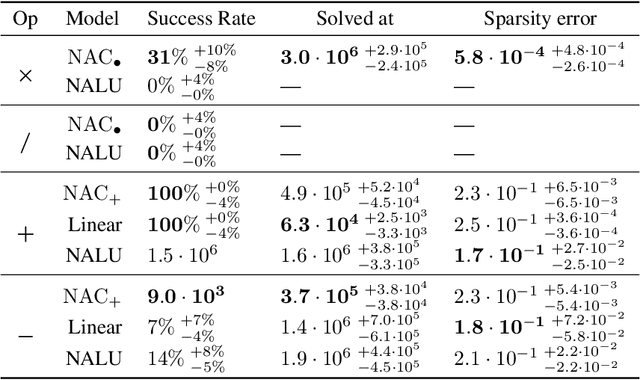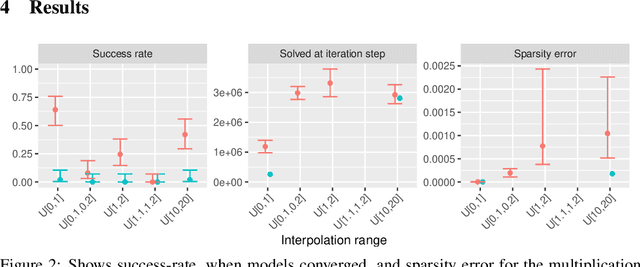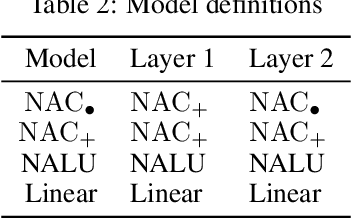Measuring Arithmetic Extrapolation Performance
Paper and Code
Nov 07, 2019



The Neural Arithmetic Logic Unit (NALU) is a neural network layer that can learn exact arithmetic operations between the elements of a hidden state. The goal of NALU is to learn perfect extrapolation, which requires learning the exact underlying logic of an unknown arithmetic problem. Evaluating the performance of the NALU is non-trivial as one arithmetic problem might have many solutions. As a consequence, single-instance MSE has been used to evaluate and compare performance between models. However, it can be hard to interpret what magnitude of MSE represents a correct solution and models sensitivity to initialization. We propose using a success-criterion to measure if and when a model converges. Using a success-criterion we can summarize success-rate over many initialization seeds and calculate confidence intervals. We contribute a generalized version of the previous arithmetic benchmark to measure models sensitivity under different conditions. This is, to our knowledge, the first extensive evaluation with respect to convergence of the NALU and its sub-units. Using a success-criterion to summarize 4800 experiments we find that consistently learning arithmetic extrapolation is challenging, in particular for multiplication.
 Add to Chrome
Add to Chrome Add to Firefox
Add to Firefox Add to Edge
Add to Edge